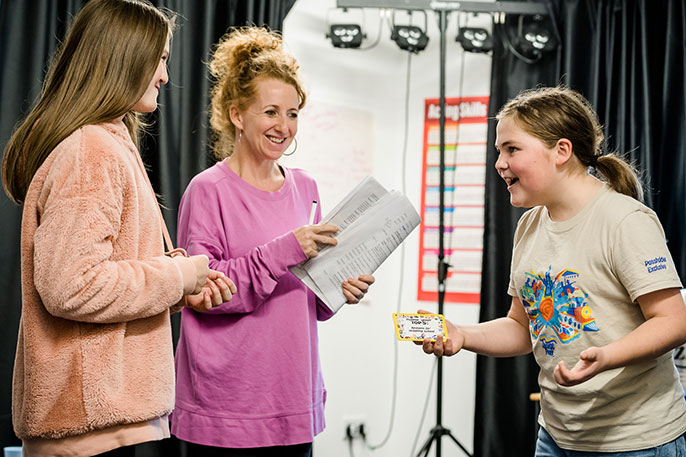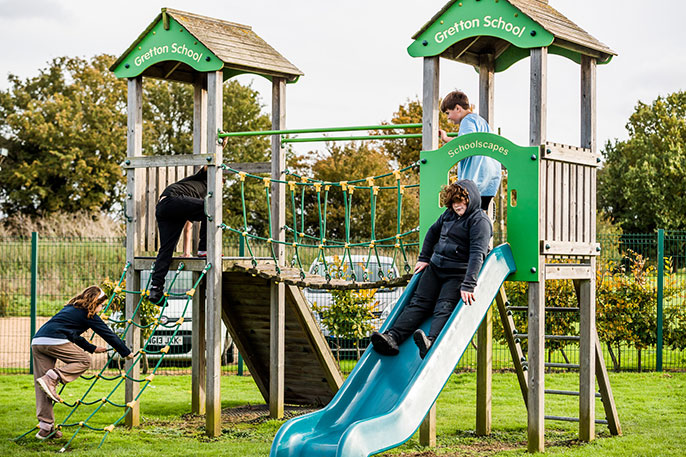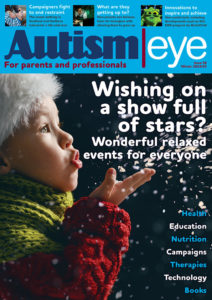We’re extremely proud to share that Gretton School’s Relational Practice has been acknowledged by the National Association of Special Schools (NASS) with an award for Outstanding Impact!
This accolade, paired with our “Outstanding” Ofsted rating earlier this year, is helping to shine a light on our commitment to creating a supportive, thriving space for autistic children and young people.
A nurturing environment for every learner
At Gretton, we know support is about connection. As a specialist school in Girton, Cambridge, serving learners aged 5-19, we welcome day learners and weekly boarders.
Our expertise in autism means we understand how consistent routines and staffing reduce anxiety, helping our learners to feel safe and confident in their surroundings. With small, personal classes and a high staff-to-learner ratio, we get to know each learner well and tailor strategies to support them in their daily school life.
Our headteacher, Beth Elkins, who’s shaped this approach over the past four years, describes Relational Practice as “the thing that pervades every single interaction at the school, it is the underpinning culture, it is the thread that runs through everything that we do”.
At its heart, Relational Practice is about creating a nurturing environment where each interaction matters, helping learners grow academically, socially, and emotionally.
Rethinking our approach to establishing trusting relationships
Relational Practice at Gretton began with us rethinking how staff considered the behaviour of learners – a powerful shift away from holding leaders accountable, to enabling learners to understand and express their emotional states in more positive ways.
Reflecting on a colleague’s advice to “hold the learner in positive regard, no matter what,” Beth notes that this mindset became the foundation for everything else.
Solution circles now guide our approach, prompting us to ask, “What are we seeing? What do we want to achieve? What’s the goal?” This focus on preparing learners for adulthood and fostering self-belief has been transformative, and it is so exciting to share with others that a heavy focus on something as simple as the language you use about, around, and with learners can cause their whole world to shift.
Building confidence in every interaction
Many of our learners come from backgrounds of emotional and educational trauma, where even simple words such as “school” or hearing their name can be triggering.
That’s why our focus on Relational Practice is essential. Whether it’s helping learners manage a really tough day, their emotional response to unexpected changes, or navigating social interactions, Relational Practice allows us to get learners in a more regulated place and learn a different way of expressing the emotions that can sometimes overwhelm them.
For instance, if a child wants a turn on the swings but struggles to ask, a teaching assistant might step in, guiding them with, “What you can do here is…” This kind of support teaches vital communication skills and empowers learners to handle different situations confidently.
The impact of Relational Practice
Relational Practice teaches learners how to have relationships long into the future, when they come to a point where they disagree with someone, they have learnt the processes, structures, and language to enable them to navigate that difficulty.
Now, two to three years on from beginning to embed Relational Practice at Gretton, we are seeing fewer incidents alongside a growing cohort and are now looking at how we can expand our Relational Practice to the wider school, and local community.
Becoming proud and valued members of the Gretton community
The power of Relational Practice lies in these authentic connections between staff and learners, which create an environment that allows learners to engage and thrive academically and socially.
By celebrating each learner’s unique experience with autism, we aim to instil a sense of pride and self-understanding.
When learners graduate from Gretton, they do so with a deeper awareness of their own autism, its impact on themselves and others, and a readiness to celebrate their difference, and confidently navigate life’s complexities.
Further information
Take a read: For an insight into Beth’s perspective and personal experience at Gretton, we invite you to read one of her articles: ‘What is it like to be an autistic headteacher of autistic children?’
See Relational Practice in action! If you have an autistic child and are looking for a specialist provision, why not attend one of our open afternoon tours to experience what Gretton is all about?
https://www.grettonschool.com/open-afternoon-information
Have a listen to Beth Elkins talk about Relational Practice in more detail here:




















